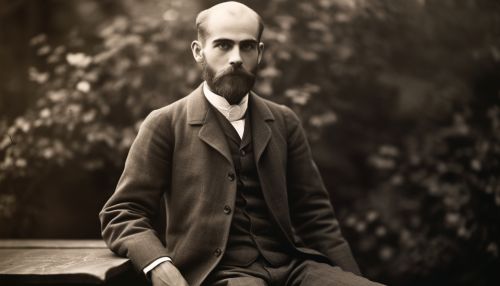Émile Durkheim
Early Life and Education
Émile Durkheim was born on April 15, 1858, in Épinal, France. He was the son of a rabbi and descended from a long line of rabbis, but chose not to follow in their footsteps. Instead, Durkheim decided to pursue his education in philosophy. He was accepted into the prestigious École Normale Supérieure (ENS) in Paris in 1879, where he studied philosophy alongside notable contemporaries such as Henri Bergson.


Durkheim passed his agrégation, the competitive examination required for the qualification to teach in French secondary schools, in 1882. After teaching philosophy for several years, Durkheim left France for Germany in 1885. There, he studied sociology and became particularly interested in how social order is maintained in society.
Career and Contributions to Sociology
Durkheim's work in sociology has had a profound influence on the discipline. He is often considered one of the founding figures of sociology, along with Karl Marx and Max Weber. Durkheim's work was instrumental in establishing sociology as a recognized academic discipline.
Durkheim's first major sociological work was "The Division of Labor in Society" (1893). In this book, Durkheim discussed how modern society is held together by a division of labor that makes individuals dependent upon each other. He introduced the concept of anomie, a state of normlessness that occurs when the expectations of behavior are unclear, and argued that anomie is a result of the division of labor.
In 1895, Durkheim published "The Rules of Sociological Method," his second major work, where he insisted on the scientific nature of sociology. He defined sociology as the science of social facts, and he outlined his method for studying social facts.
In 1897, Durkheim published his third major work, "Suicide." In this study, Durkheim explored the differing suicide rates among Protestants and Catholics, arguing that stronger social control among Catholics results in lower suicide rates. This work was a groundbreaking example of how sociological research can shed light on social phenomena.
Durkheim's last major work, "The Elementary Forms of the Religious Life" (1912), is considered a seminal work in the sociology of religion. In this book, Durkheim argued that religion is a social phenomenon and that the concept of the sacred is the cornerstone of all religions.


Throughout his career, Durkheim was deeply involved in the academic world. In 1896, he founded the first French academic journal dedicated to sociology, L'Année Sociologique. Durkheim also served as a professor at the University of Bordeaux and later at the University of Paris, where he became the Chair of Education and Sociology.
Legacy and Influence
Durkheim's work has left a lasting impact on sociology and other social sciences. His methodological approach to studying social phenomena as external realities has been widely adopted. His concept of anomie has been influential in both sociology and criminology.
Durkheim's theories on religion have also been influential in the study of religion and society. His view that religion serves to bind society together has been widely discussed and debated.
Durkheim's work continues to be studied and applied in a wide range of academic disciplines, including sociology, anthropology, psychology, and political science.
